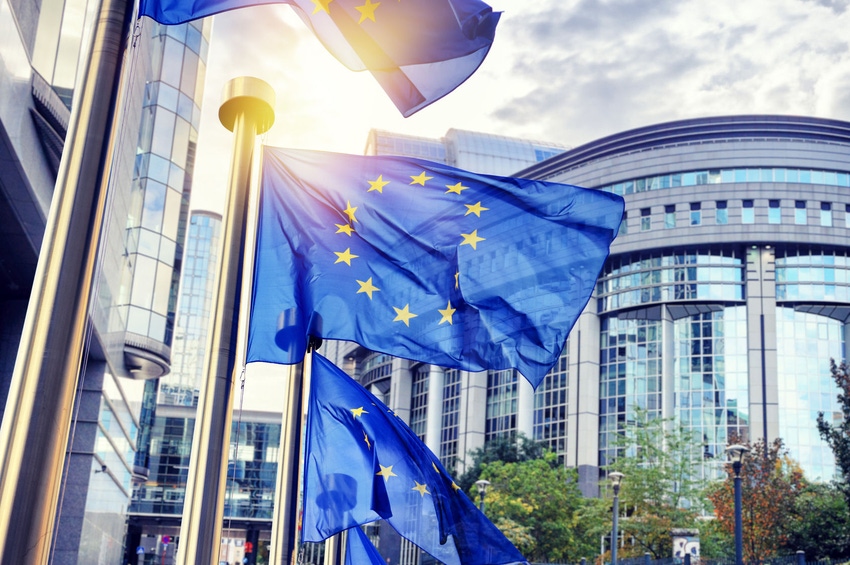The European Court of Justice has dealt a major blow to UK spooks with a ruling could lead to the Snoopers Charter being diluted or even repealed.
December 21, 2016

The European Court of Justice has dealt a major blow to UK spooks with a ruling could lead to the Snoopers Charter being diluted or even repealed.
While most would accept there is just cause for certain data to be intercepted, analysed and retained in the name of national security the Investigatory Powers bill, nicknamed the Snoopers Charter, has attracted criticism due to the fact that intelligence agencies are potentially able to collect data indiscriminately.
Bulk collections and location based interception would allow intelligence agencies to collect data of those under investigation, while simultaneously collecting the data of innocent bystanders. The government has justified this by highlighting the manpower which will be needed to manage individual data-sets, though this has now been shot down by the European Court of Justice highlighting the ‘general and indiscriminate retention’ of emails and electronic communications by governments is illegal.
In short, the court has stated the indiscriminate retention of data cannot be justified within a democratic society. It does not prevent intelligence agencies from doing their jobs, but it adds a layer of justification, necessity and accountability which previously was not present in the legislation. Any legislation must be clear and precise and must provide for sufficient guarantees of the protection of data against risks of misuse. In other words, grey areas which may have benefitted the intelligence agencies must now be clarified.
“In today’s judgment, the Court’s answer is that EU law precludes national legislation that prescribes general and indiscriminate retention of data,” a statement from the Court reads. The Court confirms first that the national measures at issue fall within the scope of the directive. The protection of the confidentiality of electronic communications and related traffic data guaranteed by the directive, applies to the measures taken by all persons other than users, whether by private persons or bodies, or by State bodies.
“The Court states that, with respect to retention, the retained data, taken as a whole, is liable to allow very precise conclusions to be drawn concerning the private lives of the persons whose data has been retained.
“The interference by national legislation that provides for the retention of traffic data and location data with that right must therefore be considered to be particularly serious. The fact that the data is retained without the users of electronic communications services being informed of the fact is likely to cause the persons concerned to feel that their private lives are the subject of constant surveillance. Consequently, only the objective of fighting serious crime is capable of justifying such interference.”
In the last couple of weeks, we have seen a number of governments around the world step up the capabilities of intelligence agencies, passing new legislation which increases the remit and reach of spooks in light of the digital era. Governments argue the new digital era creates the need for a new approach to surveillance, though many critics of the new legislation have highlighted the violation to privacy rights of innocent individuals.
In the UK, the initial objections have been led by Conservative MP David Davis and Labour Deputy Leader Tom Watson. The pair have been supported by Liberty, the Law Society, the Open Rights Group and Privacy International, and have already won a High Court contest on the issue, though a government appeal had the case referred to the European Court of Justice.
Taking the case to the European Court of Justice was to clarify EU laws on surveillance. The two UK politicians have now proved Data Retention and Investigatory Powers Act (Dripa) 2014, which has subsequently been replaced by the Snoopers Charter, was illegal. The ruling could set precedents throughout Europe, as the Snoopers Charter was one of the first of its kind to be passed into law.
Throughout Europe there have been several nations who have been debated how intelligence agencies can gain greater influence, including French and German governments who are seemingly seeking to limit encryption on communications services. While European governments will see the most immediate impact, perhaps the most important will be across the Atlantic.
Following the introduction of the Snoopers Charter, the US government introduced its own version which went a couple of steps further. While the European Court of Justice does not have any direct influence over US legislation, it has proved to be a thorn in the side of the Americans after it shot down Safe Harbour, the mechanism to facilitate the legitimate transmission of data between the EU and the US, last year.
Whether the decision to effectively declare the Snoopers Charter illegal has an impact on the EU/US relationship remains to be seen, though considering how sensitive European officials are to data privacy, and the freedom US intelligence agencies now have to spy on individuals irrelevant of location, there is potential to put strain on the current EU-US Privacy Shield. This implication will not be welcomed by some as the EU-US Privacy Shield has already come under criticism from the influential Working Party Article 29 and the European Union Data Protection Supervisor, with both highlighting the mechanism is not robust enough to maintain the integrity of European Union data protection principle and rights.
While the ruling is a major victory for privacy advocates throughout Europe, for those in the UK it could prove to be a short lived experience. Once the UK leaves the Union, it will no longer be under the judicial authority of the European Commission or the European Court of Justice, so the eventual terms of Brexit may be crucial. Either way it’s good to see such a major attack on civil liberties challenged at the highest level.
About the Author(s)
You May Also Like








.png?width=300&auto=webp&quality=80&disable=upscale)


_1.jpg?width=300&auto=webp&quality=80&disable=upscale)


.png?width=800&auto=webp&quality=80&disable=upscale)